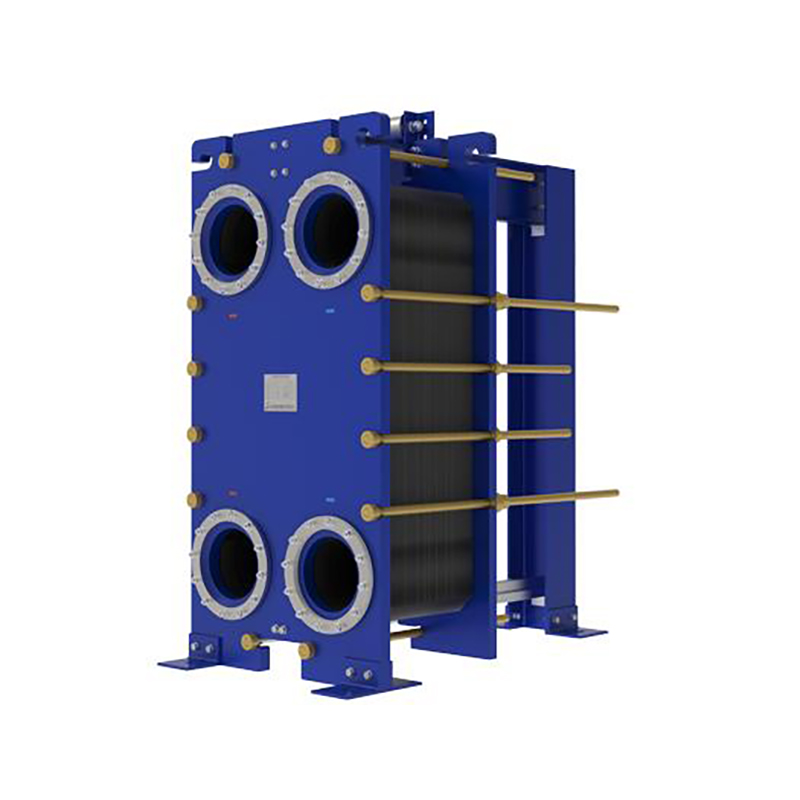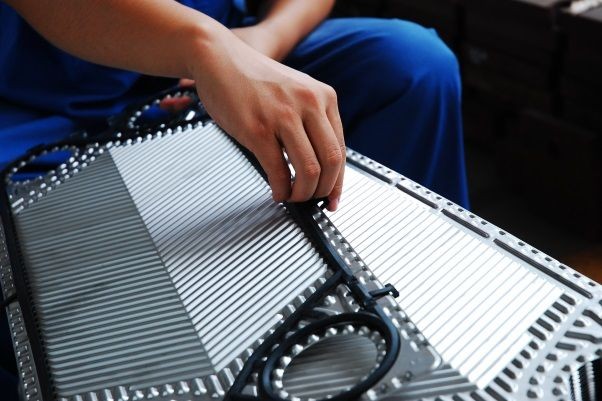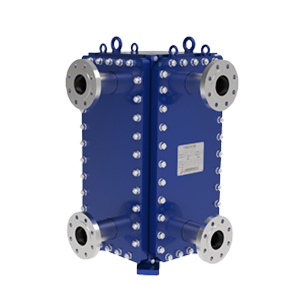5 key roles of plate heat exchanger gaskets.
Plate heat exchanger gaskets perform 5 key roles: ...
More
A CIP (Cleaning-in-Place) heat exchanger is a specialized thermal device designed to be cleaned without disassembly, integrating directly into a process line's automated cleaning cycles. Its core function is to efficiently transfer heat to or from a product stream while being inherently compatible with rigorous, automated cleaning procedures that use caustic, acidic, or sanitizing solutions. This design is fundamental to maintaining stringent hygiene and operational efficiency in industries where product purity and process continuity are paramount.
The principle of a CIP heat exchanger revolves around its specific construction, which prioritizes cleanability alongside thermal performance. Unlike standard exchangers, CIP models are designed with minimal internal crevices, smooth surfaces, and specific gasket materials that can withstand aggressive cleaning chemicals and high temperatures. Common types like plate heat exchangers (PHEs) are favored for this duty due to their compactness and the ease with which cleaning solutions can flow turbulently across their large surface areas, effectively scouring away soilants. The cleaning process is automated and integrated into the plant's control system. A typical CIP cycle involves pre-rinsing with water to remove loose soil, followed by a caustic wash (e.g., 1-2% NaOH solution at 75-80°C for 20-30 minutes) to dissolve organic fats and proteins. An intermediate rinse precedes an acid wash (e.g., 0.8-1% HNO3 solution) to remove mineral scales like calcium deposits. A final sanitizing rinse with hot water or a chemical sanitizer like peracetic acid concludes the cycle, preparing the unit for the next production run. This entire process ensures that all internal surfaces, including those in the heat exchanger, are thoroughly cleaned and sanitized without any manual labor, eliminating cross-contamination risks and ensuring consistent product quality. The thermal efficiency is maintained cycle after cycle because the cleaning prevents the buildup of insulating fouling layers, which would otherwise drastically reduce heat transfer coefficients—from a clean state of perhaps 5000 W/m²K down to 1000 W/m²K or lower if fouled.
The adoption of a CIP heat exchanger is driven by the critical need for operational efficiency, uncompromising product safety, and significant long-term cost reduction in continuous processing industries. Its use is not merely a convenience but a strategic investment in maintaining a validated, hygienic process that meets global food, pharmaceutical, and beverage safety standards. The primary justification lies in its ability to eliminate production downtime traditionally associated with manual cleaning, which can take hours for a standard exchanger, thereby maximizing asset utilization and overall equipment effectiveness (OEE). For facilities operating multiple batches per day, this capability is transformative, enabling 24/7 production schedules and faster changeovers between different products.
Using a CIP heat exchanger delivers profound economic and qualitative benefits. Data from industry case studies consistently shows that automated CIP systems can reduce cleaning time by over 80% compared to manual methods, directly increasing production capacity. Furthermore, they standardize the cleaning process, ensuring a repeatable and validated outcome that eliminates human error and variability, which is a prerequisite for FDA, USDA, and other regulatory compliance. This is crucial for avoiding costly recalls or production shutdowns due to contamination. From a maintenance perspective, these systems protect the capital investment in the heat exchanger itself. By preventing aggressive fouling, they maintain optimal heat transfer coefficients, reducing energy consumption required for heating or cooling by an estimated 10-20% compared to a fouled unit. They also minimize mechanical stress and corrosion caused by frequent disassembly and reassembly, extending the equipment's service life. The reduction in labor costs is also substantial, as no manual intervention is required for cleaning. In essence, a CIP heat exchanger is the cornerstone of a modern, efficient, and hygienic processing plant, directly contributing to higher product quality, lower operational costs, and enhanced food safety.
Select the most popular foreign trade service products to meet your diverse needs
Learn more about the dynamics and professional knowledge of the foreign trade industry

Plate heat exchanger gaskets perform 5 key roles: ...
More
A gasket in heat exchanger seals surfaces, blocks ...
More
API 662 defines standards for plate heat exchanger...
More
Compare top frame plate heat exchanger models for ...
More
User reviews show the american standard heat excha...
More
You can see clear differences between welded block...
MoreSelect the most popular foreign trade service products to meet your diverse needs
Explore more content related to foreign trade services

User Comments
Service Experience Sharing from Real Customers
Michael Chen
Process EngineerThis CIP heat exchanger has been a game-changer for our daily cleaning cycles. The heat recovery efficiency is outstanding, significantly reducing our energy costs and downtime. The build quality is robust and has handled our high-concentration caustic solutions without any issues for over a year now.
Sarah Johnson
Plant ManagerExtremely reliable and efficient. We integrated this CIP heat exchanger into our dairy processing line, and it has provided consistent, precise temperature control for all our cleaning phases. It's easy to maintain and has improved our overall CIP effectiveness tremendously.
David Rodriguez
Maintenance SupervisorA solid piece of equipment. The design allows for easy inspection and cleaning of the plates. We've had minimal maintenance issues, and when we did, the service support was excellent. It delivers exactly what was promised in terms of performance.
Emily Williams
BrewmasterPerfect for our craft brewery's needs. This compact heat exchanger heats the CIP solution quickly and maintains the temperature throughout the entire cycle, ensuring a perfect clean for our tanks and lines every time. A vital piece of our quality assurance program.